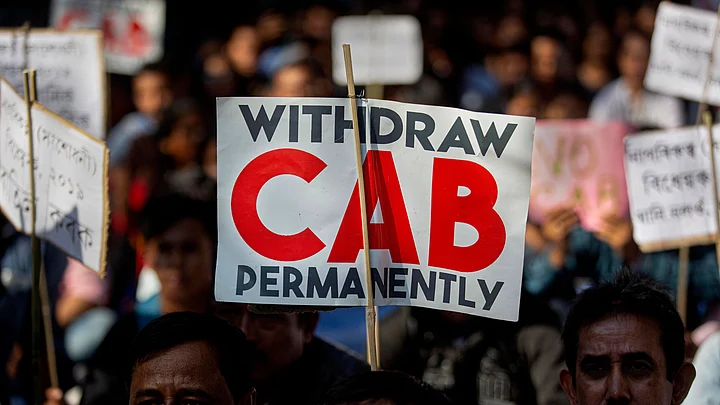With the Citizenship (Amendment) Bill being passed in the Lok Sabha at midnight on Tuesday, 10 December, with 311 members favouring it and 80 voting against it, the next test is now the Rajya Sabha
Compared to the Lok Sabha, where the NDA has a comfortable majority, the numbers are more closely matched in Upper House.
Based on the positions taken by various parties in the Lok Sabha, it appears that the government might have a narrow lead in the Upper House. With five seats lying vacant, the strength of the House is 240. The halfway mark is 120.
If the Janata Dal (United) and AIADMK reconsider their support for Bill, the government will be in for a close battle. The Shiv Sena on Tuesday said that it won’t support the Bill unless its concerns are addressed.
Here’s how the numbers stack up.
Parties Supporting the Citizenship Bill
These are the parties that are likely to support the Bill in the Rajya Sabha, with their respective strength in the House:
NDA parties: BJP (83), AIADMK (11), JD-U (6), SAD (3), AGP (1), BPF (1), LJP (1), PMK (1), RPI (1), Nominated (3), Independents (4). Total: 115
The four independents who have been listed along with the NDA are Sanjay Kakade, Parimal Nathwani, Amar Singh and Dr Subhash Chandra. The three nominated MPs listed with the NDA are Swapan Dasgupta, Mary Kom and Narendra Jadhav.
Eight other nominated MPs are BJP members and have been included within the BJP’s tally.
Then there are non-NDA parties that supported the Bill: BJD (7), YSRCP (2), Shiv Sena (3), TDP (2). Total: 14.
But this could change when the Bill is tabled in the Rajya Sabha.
Shiv Sena chief Uddhav Thackeray said that his party, which has 3 MPs in the Upper House, will not support the Bill “unless things are clear”.
The JD(U), which has 6 MPs, also appears to be split with senior leaders Prashant Kishor and Pavan Verma speaking out against the Bill.
But the most crucial party in this is AIADMK with 11 MPs. The party is facing a lot of flak in its state Tamil Nadu for supporting a Bill that excludes Sri Lankan Tamil refugees.
If JD(U), AIADMK and Shiv Sena abstain instead of supporting the Bill, the halfway mark would come down to 110. Parties supporting the Bill would be down to 109.
Bur if parties don’t change the stand taken in the Lok Sabha, the NDA has a few MPs more than the halfway mark in the Rajya Sabha.
Parties Opposing the Bill
UPA: Congress (46), DMK (5), IUML (1), Kerala Congress (1), NCP (4), RJD (4), MDMK (1), Nominated (1). Total: 63
Non-UPA parties opposing the Bill: TMC (13), SP (9), TRS (6), CPM (5), CPI (1), BSP (4), AAP (3), PDP (2). Total: 43
Therefore parties opposing the Bill have 106 MPs in the Rajya Sabha. In addition to this, two Independent MPs – MP Veerendra Kumar and Ritabrata Banerjee – are also likely to oppose the Bill. This takes the number of those opposing the Bill to 108, which is 12 less than the halfway mark.
It appears that the parties supporting the Bill have a narrow lead of around 20 seats. This equation is unlikely to change unless one or two of the NDA partners or other parties like BJD and YSRCP change their stand.
This has happened in the past, with AIADMK and JD(U) not backing the BJP on the Triple Talaq Bill.
But unless there is a change in the stand of these parties, the Bill might pass in the Rajya Sabha, but with a slender majority.
